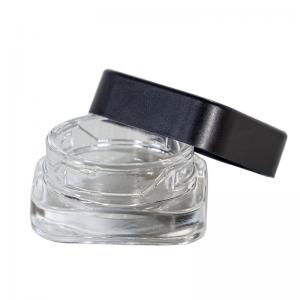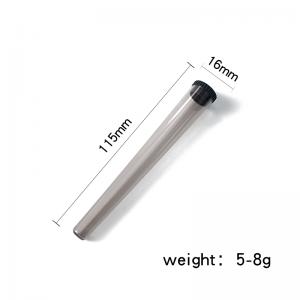With only a few days left in the 2020 legislative session, California state lawmakers are still considering three significant bills related to both marijuana and hemp that could yet become law.
Time is short: California lawmakers have until Monday, Aug. 31, to approve bills – though it’s possible they could have more time.
Rumors have swirled about the possibility of a special session to make up for lost time, but even if one were called it’s uncertain whether any marijuana or hemp legislation would be considered.
Many marijuana industry priorities were sidelined earlier this year when the Legislature took an extended recess because of the coronavirus crisis.
If the session does end Monday, Gov. Gavin New som would have until the end of September to sign or veto any bills that have passed.
The banking bill has divided those in the industry over what some say is a “data grab” by local governments and financial institutions.
The hemp measure is drawing fire from hemp farmers who say it would impose unnecessarily burdensome regulations on their businesses, while those in the marijuana industry argue the rules would put hemp companies on par with what they already have to deal with.
The tax measure, meanwhile, falls short of what some say the marijuana industry truly needs – a rollback of state tax rates.
Here’s where each stands.
Assembly Bill 1525
This banking measure was sponsored by a longtime cannabis industry champion, Assembly Member Reggie Jones-Sawyer, a Los Angeles Democrat.
The measure would protect financial institutions under state law if they consent to working with marijuana businesses, but it would also allow banks to require additional information from businesses, on a voluntary basis.
“My district is home to a number of financial institutions that would love to provide financial services to cannabis businesses but feel there is too much risk without assistance from the state,” Jones-Sawyer said via an emailed statement.
“AB 1525 responds to those concerns by providing additional access to financial services for cannabis businesses in a manner that protects proprietary business information.”
But the industry is divided over the issue, and the L.A.-based United Cannabis Business Association (UCBA) has been rallying members to oppose it. The group argues that the bill gives too much access to sensitive business data to local governments and public agencies known as “joint powers authorities” in exchange for too little.
“It’s not worth giving up all of our privacy for a supposed banking bill that doesn’t guarantee us a bank at all,” said UCBA President Jerred Kiloh, who pledged his organization would seek to derail the bill.
Kiloh said that, under the terms of the bill, “these joint powers authorities could pre-collect all the data, including point-of-sale data, which includes your customers’ names, how much they bought, which farmer produced the product, which distributor touched it, what your wholesale price is, what your retail price is.
“I don’t know that I trust the county to have all that information,” he said.
That stands in contrast to the support for the bill from several other industry trade groups, including the California Cannabis Industry Association (CCIA), the Humboldt County-based International Cannabis Farmers Association and the L.A.-based Southern California Coalition.
The Southern California Coalition’s executive director, Adam Spiker, said the UCBA’s concerns are essentially a “misnomer” and that all Jones-Sawyer’s bill would do is grease the skids for cannabis companies trying to obtain banking services by giving up information on a voluntary basis.
“What it’s trying to do is give licensed operators the ability to give written consent, whether to a state agency or a joint powers authority, to disclose financial information to a banking institution. It’s all voluntary,” Spiker said.
Assembly Bill 2028
The hemp-related measure was hastily amended Monday – to the surprise of several stakeholders – to include 66 pages of hemp industry regulations.
California is the No. 3 hemp producer in the nation by acreage, according to the recently released 2020 U.S. Hemp Harvest Outlook produced byHemp Industry Dailyand the Hemp Industries Association.
From a macro level, the bill would put the hemp industry more on par with marijuana businesses in terms of strict state governmental oversight and rules.
The amendment was the “product of extensive negotiations with a broad coalition and the administration” of Gov. Gavin Newsom, lobbyist Amy Jenkins wrote in an email.
Jenkins, who works on behalf of the CCIA and marijuana businesses, said the bill would establish “a robust framework to allow hemp CBD and other derivatives to be safely and legally manufactured in California and rigorous consumer safety protocols.
“We also successfully negotiated testing parity between (marijuana) and hemp products, as well as language to mandate that the licensing authorities consider the incorporation of hemp into the cannabis supply chain.”
But the proposed regulations in the amendment have frustrated many California hemp farmers, said Josh Schneider, CEO of San Diego-based Cultivaris Hemp.
“There are conflicts inherent in the hemp versus THC production, and right now, it appears the THC industry wants these excessive regulations on hemp to level the playing field, regulatorily speaking,” Schneider said.
He warned that if AB 2028 makes it into law with the new amendments, “it will dramatically chill the growth of the hemp industry in California.”
“It’s already too difficult and confusing to navigate the rules as they stand, but adding a bunch of contradictory new rules … is a real problem,” Schneider said, adding that many California hemp farmers didn’t even plant crops this year after having a hard time turning a profit in 2019.
Senate Bill 827
The governor’s trailer bill – and the only one of these three measures that observers believe is sure to be signed into law – would freeze for one year the ability of the California Department of Tax and Fee Administration (CDTFA) to increase the markup rate upon which the state marijuana excise tax is based.
The measure would also bar the CDTFA from changing the state marijuana cultivation tax rate for inflation unless that rate is less than zero.
The issue came up after the agency raised the markup rate in 2019 – effective in January 2020 – and effectively increased state marijuana taxes at a time when the entire industry had been clamoring for tax relief.
The California Cannabis Industry Association wrote a letter of support for the change and said the Legislature needs to act because the CDTFA is required by state law to recalculate the tax rates every six months.
While no one in the industry opposes such a move, Kiloh and Spiker hoped to see more significant tax relief this year.
“The reality is, that’s just so little,” Kiloh said. “‘We’re going to freeze your costs of doing business during a pandemic.'”
Spiker added, “This isn’t what we want, but at least we’re getting something.”
Still, Spiker noted, the legal industry continues to struggle in the face of illicit-market competition, which undercuts legal retailers on prices because illegal retailers don’t pay any taxes.
And if that systemic issue is not eventually addressed, Spiker warned, it’ll be to the detriment of the entire state.
“I want us to keep up pressure on the state,” he said. “We have a robust illicit industry undercutting everything.”


 English
English français
français Deutsch
Deutsch русский
русский italiano
italiano español
español português
português Nederlands
Nederlands 日本語
日本語 한국의
한국의











 2020-08-28
2020-08-28

 Online service
Online service


